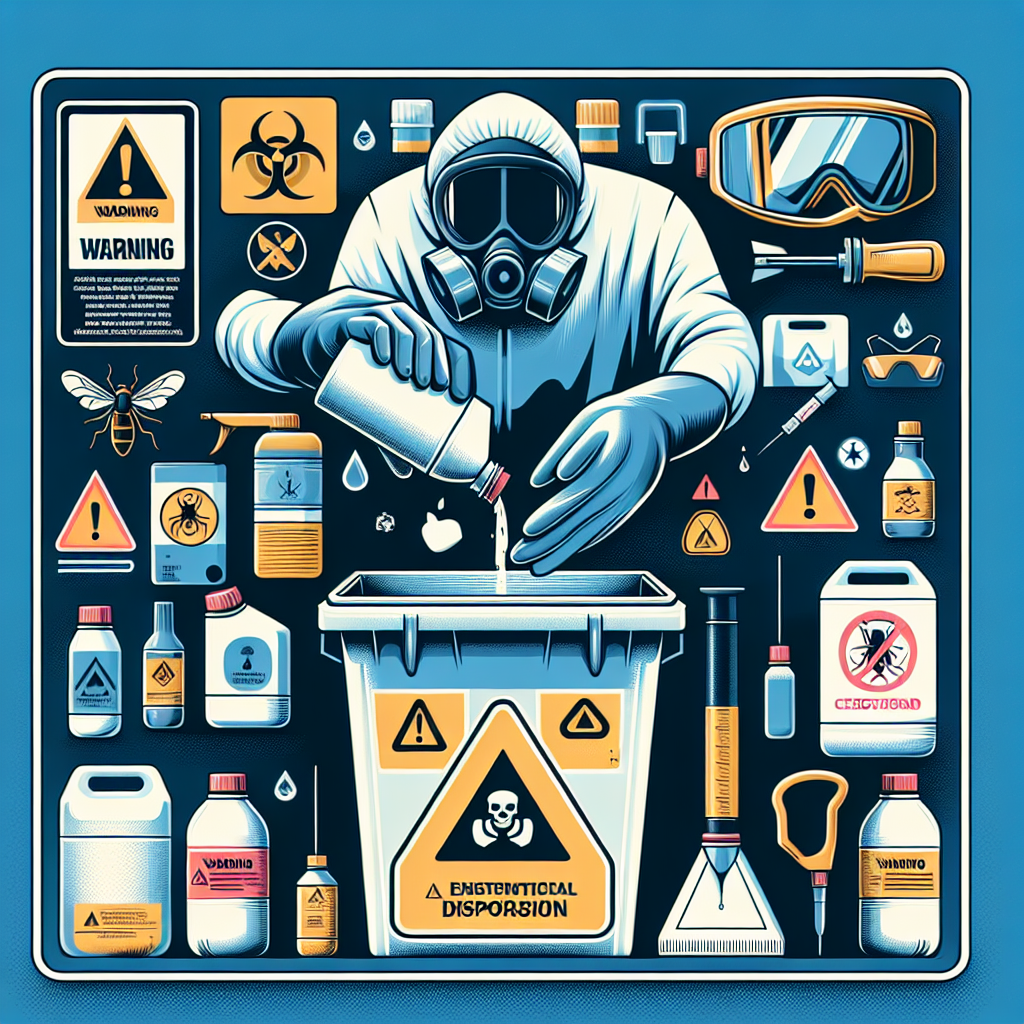When it comes to pest control, ensuring our homes are free of unwanted intruders is essential. However, the chemicals used to achieve this goal can pose environmental and health risks if not disposed of properly. In this article, we’ll explore safe disposal methods for pest control chemicals that protect both you and the planet.
Understanding Pest Control Chemicals
Pest control chemicals are designed to eliminate pests like insects and rodents effectively. They come in various forms, including sprays, baits, and granules, and often contain toxic substances. While these products can be incredibly effective when used correctly, they can have harmful effects on the environment and human health if not handled and disposed of properly.
Why Safe Disposal Matters
Improper disposal of pest control chemicals can lead to contamination of water sources, harm to wildlife, and increased health risks for you and your family. Understanding the importance of safe disposal is the first step in responsible pest management.
How to Identify Pest Control Chemicals
Before disposing of any products, it’s crucial to identify them accurately. Here are a few common types of pest control chemicals:
- Insecticides: Used to kill insects.
- Rodenticides: Designed to eliminate rodents.
- Herbicides: Used to control undesirable plants.
Check the labels for specific instructions, safety warnings, and disposal guidelines. Labels can often provide valuable information on handling and disposal procedures.
Steps for Safely Disposing of Pest Control Chemicals
1. Review Labels and Manufacturer Directions
Start by reviewing the product label for any specific disposal instructions. Many manufacturers provide clear guidelines and recommendations tailored to their products.
2. Utilize Local Hazardous Waste Facilities
One of the safest ways to dispose of pest control chemicals is through local hazardous waste collection programs. Many communities have designated drop-off centers or scheduled collection days for hazardous materials. Contact your local waste management facility or visit their website for detailed information.
3. Participate in Take-Back Programs
Many retailers and municipalities offer take-back programs specifically designed for hazardous materials, including pest control chemicals. These programs ensure that hazardous materials are disposed of safely and reduce the risk of the chemicals entering landfills.
4. Seal and Store Properly Until Disposal
If you cannot dispose of the chemicals immediately, seal the products tightly in their original containers to prevent leaks or spills. Store them in a cool, dry place, away from children and pets, until you can take them to a disposal site.
5. Avoid Regular Trash Bins
Never dispose of pest control chemicals in your regular trash bins, down the drain, or in compost. Doing so can lead to severe environmental contamination and pose risks to waste management workers.
Eco-Friendly Alternatives to Traditional Pest Control
While chemical pesticides can be effective, there are eco-friendly alternatives worth considering. Integrated pest management (IPM) focuses on using biological and sustainable methods to control pests. Here are some options:
- Natural Predators: Introducing predators can help control pest populations.
- Essential Oils: Certain essential oils, like peppermint and tea tree, can deter pests.
- Homemade Traps: Simple traps can be made from everyday household items.
Educating Others on Safe Disposal
As we strive to promote safe practices, it’s essential to educate friends and family about the proper disposal methods for pest control chemicals. Share this guide or discuss your experiences to encourage responsible pest management within your community.
Conclusion
Safely disposing of pest control chemicals is crucial for both health and environmental safety. By following the tips outlined in this guide, you can manage pest problems without risking harm to yourself or the planet. Remember to always adhere to safe practices and support eco-friendly alternatives in pest management. Together, we can create a healthier environment for ourselves and future generations.
Your Action Steps
- Check Your Home: Take inventory of any pest control products you have.
- Make a Plan: Use the disposal methods discussed to get rid of unwanted chemicals.
- Spread the Word: Share this knowledge with others to promote safe practices in pest management.
With the right approach, we can keep our homes pest-free while being responsible stewards of the environment.


